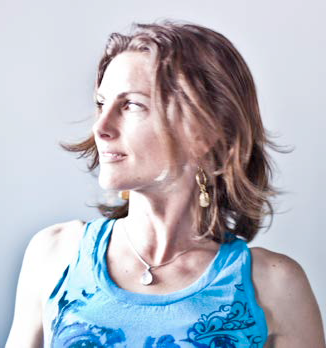Over two years ago, I made a commitment to live out each Yama in my life and write about the experience.
That series, Applying the Yamas to Daily Life has been cornerstone content for The Yoga Lunchbox and has also been published in Asana Journal. Now, at the prompting of my editor at Asana, I’ve embarked on the same mission for the Niyamas.
Every few weeks, I’m picking one niyama and studying it plus observing how it shows up in my life. For those new to yoga, the Yamas and Niyamas spring from Patanjali’s yoga Sutras, where he codifies the practice of Yoga into eight limbs, like branches on a tree. The Yamas and Niyamas outline how a yogi behaves toward him or herself, and others.
Not so much moral imperatives, the Yamas and Niyamas are ways of being that naturally arise as we practise the other limbs like asana, pranayama and meditation.
We can choose to impose them on ourselves and our pula pula inflavel lives, but until we’re ready to naturally unfold in that direction, there will be some conflict or resistance. This in itself can be useful because it highlights areas of Self for us to look at and learn about.
The first yama is Saucha, usually translated as purity and sometimes as cleanliness.
No matter what kind of Yoga we’re doing – asana, pranayama, meditation, chanting, Bhakti Yoga, Karma Yoga, Jnana Yoga – we’re always working with purification. Yoga as a practice purifies our system and by extension, our lives.
This clearing out on all levels allows Prana (life force) or energy to flow freely. We release and dissolve all kinds of blockages.
This is what Saucha is about – clearing out the dirt removing the unnecessary. On a basic physical level, it applies to how we clean ourselves. It’s the way we shower, scrape our tongues, clean our teeth, wear clean clothes and eat life-supporting, nourishing foods that move cleanly through our systems. Done daily, and with reverence, these simple practices will lay a strong foundation to our lives. We’ll feel better about ourselves.
On a deeper level, Saucha shows up in our lives in other ways.
Saucha is about purity of energy, so in our homes; it’s about the way we organise and maintain our space.
Compare the feeling of walking into a zen-style room. The floor is wooden, there is a rug on the floor, aligned perfectly with the walls. Two pot plants fill separate corners. There is a sense of everything in its place and a place for everything. The room is light and airy. Now walk into a cluttered lounge with furniture at haphazard angles, dirty dishes strewn around the room, weeks of newspapers stashed on the coffee table, clothes hanging over chair arms and toys strewn across the room.
How does it feel walking into each room? What is you inclination walking into each room? In the zenstyle room, my inclination is to sit and breathe. The energy of the room is pure. In the cluttered lounge, my inclination is to clean up and find a place for everything. Then I can sit and breathe because now the energy of the room is pure.
That is saucha in action – the recognition that everything has its place and there is a place for everything. From that place of places, energy can flow smoothly. There is nothing to do but breathe.
There is good reason for this Niyama and I notice it in my own life. Whenever I move into a house, first I have to get everything in order. It’s not a pristine manic order, but a sense of discovering where everything belongs so it can fulfill its function with maximum efficiency and beauty.
Living with a child means there’s often toys littering the lounge floor. But those toys have a place and when it’s time for bed, Samuel helps me put all his toys in their place. Underneath the daily messiness is a sense of order which we always return to, maybe not every single night, but most nights.
This adds a clarity to my life that makes my mind work better. I write better in a clean space. Everything flows smoother. The light of my life can shine brighter in a clean, orderly house when I’m clean and pure!
Imagine this – each of us has a light inside that shines out to the world. If the glass that surrounds that light is smudged, or blackened, our light will be dull or faded. The practice of Saucha cleans the glass so the light can shine brightly.
My light-shining often takes the form of housework.
I’ve noticed that when I feel scattered or heavy I naturally do housework. I’ll start organising.
Maybe I’ll go to put something away in the fridge and notice the fridge door has smeared ketchup on it. I’ll fetch a cloth and clean that ketchup. In doing so, I’ll notice crumbs in castelo inflavel the door shelves so take out the bottles and clean the shelves.
Half an hour later, I will have completely cleaned out the fridge and arranged everything according to how we use it and how it best fits. The cleaning and ordering of my physical environment has a comparable effect on my psyche. I feel clean and ordered and clear again. This is a completely different experience from cleaning a fridge because it “has to be done”. There’s almost a merging between myself and the fridge as I attend to its needs in the moment 😉
I have known this about myself for five or so years now – that housework is meditative and therapeutic. It’s only through my study of Saucha that I’m now able to put a name to my action. Making this conscious means I can choose to take action when required now – I can notice when I’m feeling out of sorts or scattered, take a look at my surroundings, and figure out what needs sorting out and cleaning. It’s brilliant!
How might saucha show up in your life?
How do you keep your body clean and pure? Your clothing? Your room? Your house? Your life?















 About the Author Kara-Leah Grant is the author of “Forty Days of Yoga – Breaking down the barriers to a home yoga practice”, and the publisher of New Zealand’s own awesome yoga website, www.TheYogaLunchbox.co.nz. She is on a mission to make yoga a part of your daily life. A born and bred Kiwi girl who spent her twenties wandering the world and living large, Kara-Leah has spent time in Canada, the USA, France, England, Mexico, and a handful of other luscious locations. Now back at home, and playing solo mum to her young son, she’s forever grateful to her yoga practice.
About the Author Kara-Leah Grant is the author of “Forty Days of Yoga – Breaking down the barriers to a home yoga practice”, and the publisher of New Zealand’s own awesome yoga website, www.TheYogaLunchbox.co.nz. She is on a mission to make yoga a part of your daily life. A born and bred Kiwi girl who spent her twenties wandering the world and living large, Kara-Leah has spent time in Canada, the USA, France, England, Mexico, and a handful of other luscious locations. Now back at home, and playing solo mum to her young son, she’s forever grateful to her yoga practice.


 Other
Other